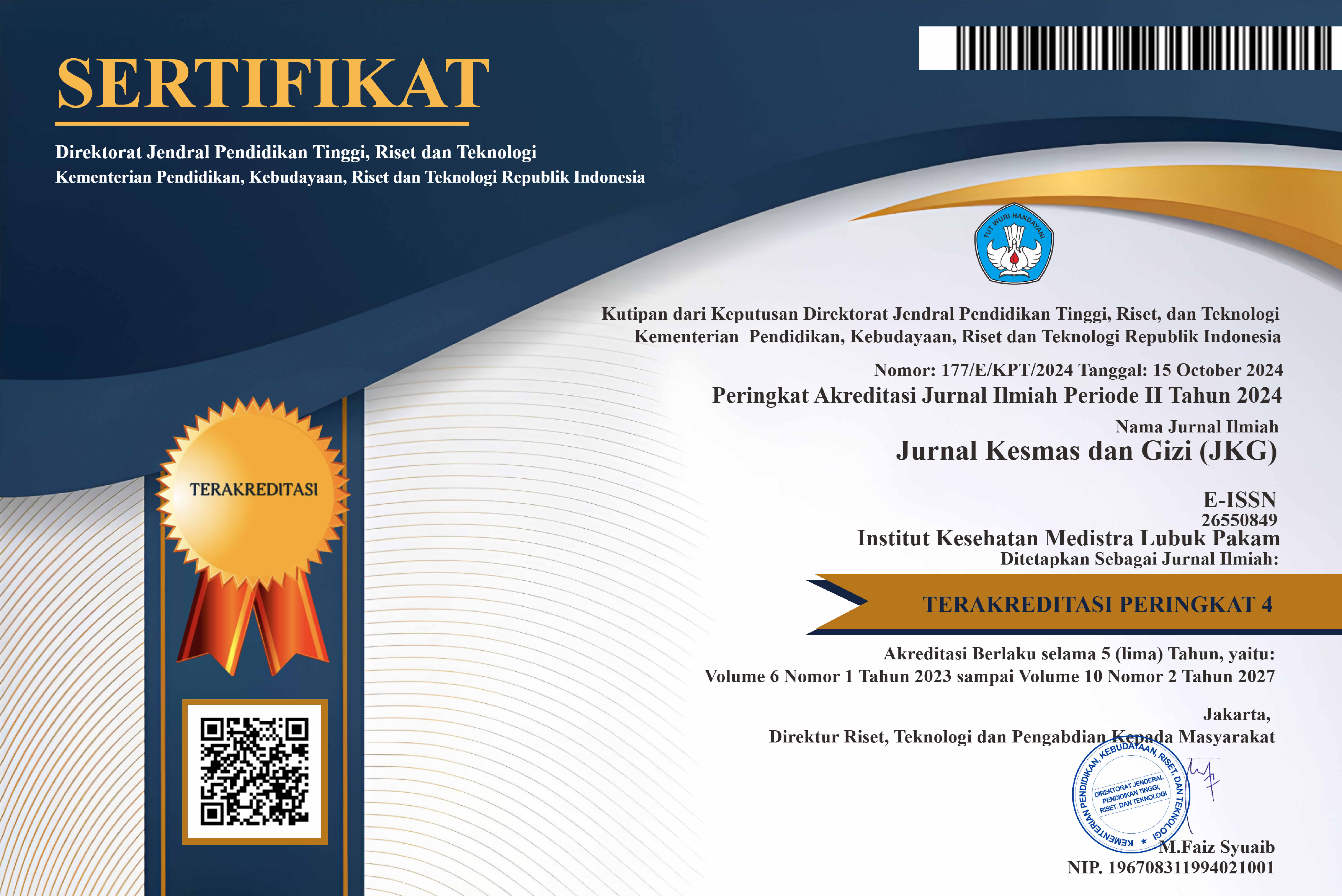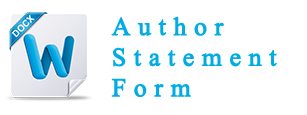The Effectiveness of Nutrition Education by Health Workers on Improving Knowledge and Attitudes of Pregnant Women in Stunting Prevention
DOI:
https://doi.org/10.35451/jkg.v7i2.2738Keywords:
Nutrition education, Stunting, Pregnant women, Knowledge, AttitudeAbstract
Background: Stunting remains a major public health issue in Indonesia, with long-term effects on children’s development. Nutrition education for pregnant women is a crucial early intervention strategy for stunting prevention. Objective: This study aimed to analyze the effectiveness of nutrition education by health workers in improving pregnant women’s knowledge and attitudes toward stunting prevention. Research Methods: A quantitative study with a cross-sectional approach was conducted among 96 pregnant women in the Lubuk Pakam Health Center area. Data were collected through questionnaires and analyzed using chi-square tests and multivariate logistic regression. Results: Most participants received good nutritional education (60.42%), had high knowledge (54.17%), and showed positive attitudes (64.58%). Good nutrition education significantly increased the odds of having high knowledge (OR = 2.90; p = 0.004) and positive attitudes (OR = 3.29; p = 0.002). Conclusion: Nutrition education is effective in improving knowledge and attitudes of pregnant women regarding stunting prevention. Structured and accessible nutrition education should be strengthened in antenatal care services.
Downloads
References
World Health Organization. WHO child growth standards: Length/height-for-age, weight-for-age, weight-for-length, weight-for-height and body mass index-for-age: Methods and development. Geneva: World Health Organization; 2006.
Kementerian Kesehatan Republik Indonesia. Survei Kesehatan Indonesia (SKI) Tahun 2023. Jakarta: Badan Kebijakan Pembangunan Kesehatan, Kemenkes RI; 2023.
Kementerian Perencanaan Pembangunan Nasional/Bappenas. Rencana Pembangunan Jangka Menengah Nasional (RPJMN) 2020–2024. Jakarta: Kementerian PPN/Bappenas; 2020.
Black RE, Victora CG, Walker SP, et al. Maternal and child undernutrition and overweight in low-income and middle-income countries. Lancet. 2013;382(9890):427–451. doi:10.1016/S0140-6736(13)60937-X.
World Health Organization. Essential nutrition actions: improving maternal, newborn, infant and young child health and nutrition. Geneva: WHO; 2013.
Kavle JA, Landry M. Addressing barriers to maternal nutrition in low- and middle-income countries: A review of the evidence and programme implications. Matern Child Nutr. 2018;14(1):e12508. doi:10.1111/mcn.12508.
Dinas Kesehatan Kabupaten Deli Serdang. Laporan Tahunan Gizi 2022. Lubuk Pakam: Dinkes Deli Serdang; 2023.
Puskesmas Lubuk Pakam. Laporan Kegiatan dan Cakupan Program Gizi Tahun 2022. Lubuk Pakam: Puskesmas Lubuk Pakam; 2023.
Rosenstock IM, Strecher VJ, Becker MH. Social learning theory and the Health Belief Model. Health Educ Q. 1988;15(2):175–183. doi:10.1177/109019818801500203.
Ajzen I. The theory of planned behavior. Organ Behav Hum Decis Process. 1991;50(2):179–211. doi:10.1016/0749-5978(91)90020-T.D, Suryani S. Edukasi gizi untuk meningkatkan perilaku makan sehat pada ibu hamil. J Gizi Dan Pangan. 2020;15(1):45-53.
Bandura A. Social Learning Theory. Englewood Cliffs, NJ: Prentice-Hall; 1977.
Pratiwi DN, Sukartini T. Pengaruh pendidikan gizi terhadap perilaku konsumsi ibu hamil. Media Gizi Indonesia. 2021;16(2):126-34.
Green LW, Kreuter MW. Health Program Planning: An Educational and Ecological Approach. 4th ed. New York: McGraw-Hill; 2005.
Black RE, Victora CG, Walker SP, et al. Maternal and child undernutrition and overweight in low-income and middle-income countries. Lancet. 2019;382(9890):427-51.
Rogers EM. Diffusion of Innovations. 5th ed. New York: Free Press; 2003.
Sari ML, Lestari R, Saputra DR. Pendidikan dan pengetahuan ibu tentang stunting. Jurnal Gizi Klinik Indonesia. 2021;17(1):47-53.
Ajzen I. The theory of planned behavior. Organizational Behavior and Human Decision Processes. 1991;50(2):179-211.
Putri RN, Rachmawati IN. Hubungan pengetahuan dan sikap ibu hamil tentang pencegahan stunting. Jurnal Kebidanan. 2023;12(1):28-35.
Febriani R, Siregar KN. Faktor budaya dalam praktik makan ibu hamil di Indonesia. Media Penelitian Gizi dan Makanan. 2020;23(2):125-32.
Rosenstock IM. Historical origins of the Health Belief Model. Health Educ Monogr. 1974;2(4):328-35.
Damayanti S, Kurniasih D. Pengaruh edukasi gizi selama antenatal care terhadap pengetahuan ibu hamil. Jurnal Kesehatan Reproduksi. 2021;12(3):152-9.
Kusnanto H, Santoso D, Widyawati MN. Kualitas komunikasi tenaga kesehatan dan pengaruhnya terhadap perilaku kesehatan ibu hamil. Jurnal Promosi Kesehatan Indonesia. 2022;17(2):129-39.
Downloads
Published
Issue
Section
License
Copyright (c) 2025 Rotua Sumihar Sitorus

This work is licensed under a Creative Commons Attribution 4.0 International License.
Copyright in each article is the property of the Author.



























